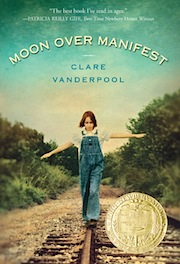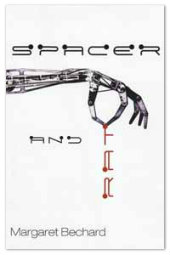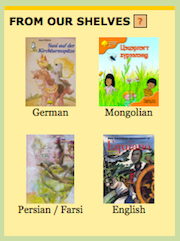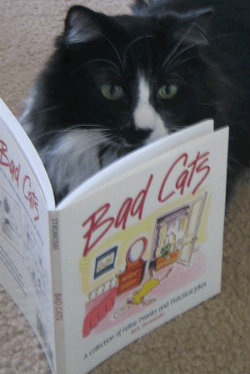Cool Summer Reading and Learning for Kids

►At MiddleWeb check out Kasey Short’s 27 Tips to Boost Kids’ Reading This Summer which suggests you communicate with families, increase access to books, link students to public library summer programs, and more.
►Also at MiddleWeb, Katie Durkin’s year-round practices for Planting the Seeds of Reading Enthusiasm are especially helpful as you prep kids for summer. Have you tried Instagram?
►The Horn Book’s intermediate and middle school summer reading lists of recent books for 2022 can take kids places both real and fictional. (Watch for the 2023 update.)
►Librarians and teachers – and students – share what works and what doesn’t in summer reading in Carly Okyle’s SLJ post. Also see SLJ’s 2021 collection of lists.
Here’s some excellent advice from a middle grades student, shared in an article at the What Kids Can Do website:
I think that if teachers are going to assign us books to read over the Summer… they should at least take the time to make it somewhat oh what’s the word yeah, FUN!! If they don’t it leaves kids with a feeling of not liking to read which I don’t agree with because I love to read, but all you need is an exciting or good book to really get you going! All I’m saying is READING SHOULD BE FUN FOR EVERYONE!!!”
– by Mepride
Teachers have labored to enliven summer reading for decades. In a 1997 NCTE journal article, Florida middle school ELA teacher Gloria Pipkin, who later wrote books for Heinemann and edited for Scholastic in the 2000’s, noted the challenges (quoted in ReadWriteThink):
Of course we want our students to read over the summer, but I’ve yet to be convinced that the typical summer reading assignment does much to extend love of reading or increase literary competence. There may be a handful of students who can’t wait to tackle our scintillating assignments on their summer vacation, but for the most part, summer reading assignments are regarded as a plague and a pox, even by avid readers, who much prefer choosing their own books.”

Building on her words, above, Franki Sibberson shares how to create that opportunity, describing her students’ book shares, the visits from public librarians, and the time provided during class for students to consider what types of books they would like to read over summer. She also invites students to write about their reading plans (and includes a link to the questions she offers them). Celebrating summer reading takes the form of kids snapping photos of their reading and sharing thoughts about it for bulletin board displays. No candy or stickers needed! Visit her Choice Literacy post for even more ideas.
Books They’ll Go For

For reading recommendations for younger kids, visit Reading Rockets, a project of WETA, and its collection of posts about summer reading.The site’s brief, lively write-ups feature fiction, nonfiction and poetry. Reading Rockets is also a great place to check for lists of award winning children’s books. Students who want to get a look at their favorite authors can visit Reading Rockets’ brief video interviews. This is a super site to recommend to parents and families, too.
Writing at Edutopia, Judy Willis MD shares some stealth tactics for parents to encourage summer reading. Here at MiddleWeb, Mike Fisher, a middle grades teacher turned literacy and tech integration consultant, suggests ways parents can involve their kids in reading and writing throughout the summer months – on their own and with family members. At his house, it’s Harry Potter time!

Students who are hankering for online classics, written in English or in English translation, can visit the Library of Congress here.
Even More Lists!
For an easy handout or website feature, check the Association for Library Service to Children (ALSC) 2023 Summer Reading List for K-8. The list features books predominately published in the 2000’s. YALSA created graphic novel lists in 2019.
Want more lists of award winning books? Don’t miss the Cybils selected by KidLitosphere Central: The Society of Bloggers in Children’s and Young Adult Literature. The 2022 winners, announced in early 2023, join lists going back to 2006 (they’re arranged by genre and age).
Online Student Reading Challenges

Middle school and high school students may submit comments of up to 1500 characters on favorite NYT reads. Teachers are also allowed to submit student writing.
Students can access New York Times content through the Learning Network links – and there are lots of them – at no cost. Winners are featured at the Learning Network and its social media. The Learning Network includes lots of helpful guidance for teachers and parents.
Like some public library opportunities, such as those based on the Collaborative Summer Library Program, this year called All Together Now, Scholastic encourages kids to keep a log – online – of time spent reading as part of its summer challenge running April 26 through September 3, 2023. Scholastic offers “a fun, safe, and completely free online destination where kids can create their own avatar, interact with their favorite Scholastic characters and authors, play games, and read books” as part of their Home Run summer.
Beyond Reading
Kids with computer access will find lots of anti-slide options this summer. Here’s a quick sampling.
Kids and parents will find lots to like in Best Apps Lists, a selection of apps arranged by category from Common Sense Media, the nonprofit which rates “media on both age-appropriateness and learning potential based on developmental criteria.”
Also kids can find a wide range of deep-dive answers to their “wonders” at the National Center for Families Learning’s Wonderopolis.

With Camp Kinda families pay $25 (with a waiver possible) for the website’s summer camp filled with activities often detailed online and enjoyed at home. Developed by EdNavigator.
Kids can visit PBS LearningMedia for online learning across content areas.
Students who enjoy space and astronomy can browse the NASA page for 5th through 8th grade (and younger kids here). Anne Jolly’s STEM by Design post, Ideas and Activities to STEM the Summer Slide, offers parents suggestions to help their children stay connected to learning along with kid-centered links to National Geographic, Scientific American, and other super sites. Find more of Anne’s STEM ideas here.
If you have found or created other resources that can help get kids reading and learning in Summer 2023, please share the links in the comments area on this page!
Photo credit above: Bogart the Cat by Elaine Vigneault
Feature image by Bente Jønsson from Pixabay
































For more information on summer reading and independent reading, check out the “Independent Reading” page on The Literacy Cookbook Website: http://www.literacycookbook.com/page.php?id=139
What a wonderful list! Sharing this widely!
Try some listening, not just reading, this summer. Listen Current is offering free summer access to their curated library of public radio stories. http://listencurrent.com/summer_listening
We’ve also posted a summer listening list, great for middle and high school. http://blog.listencurrent.com/2015/06/summer-listening-list-2015/
Another helpful list of booklists is at http://successinthemiddle.org/reading-lists/
Listenwise posted another summer listening list for 2016. Good for any time of year!
What a good compilation, Susan! Kids books by Carolyn DeCristofano are also “cool” reads. I particularly like”A Black Hole Is Not a Hole” and “Big Bang!” – well illustrated and understandable. Her website is http://www.carolyndecristofano.com